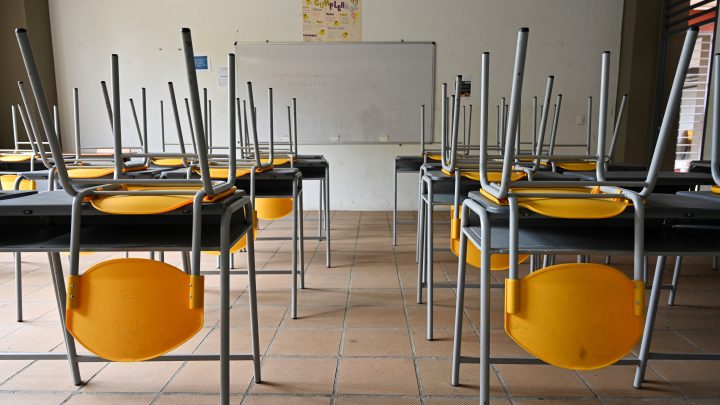
For this schoolteacher, the pandemic was a turning point
For this schoolteacher, the pandemic was a turning point

“My Economy” tells the story of the new economic normal through the eyes of people trying to make it, because we know the only numbers that really matter are the ones in your economy.

Amid the stress of remote schooling and teaching during the pandemic, many U.S. schoolteachers are leaving their profession.
High school English and public speaking teacher Abby Norman is one of them.
“My last year of teaching, I was teaching at a charter school that was designed to be online,” she said. “In the fall, things in Georgia were pretty scary and nobody really knew what we would be doing for the rest of the year, so some parents elected to take their kids and put them in the online charter school, which meant that my class sizes exploded. … I couldn’t do it anymore.”
A recent survey from the nonprofit Rand Corp. found that 1 of every 4 teachers was likely to leave her or his job at the end of the 2020-2021 school year, compared with 1 in 6 before the pandemic.
“Financially, quitting in the middle of the year with nothing to fall back on was not an option for me,” Norman said. “I needed the health insurance, and I needed the pay.”
At the end of the school year, Norman, who has a master’s degree in divinity and works part time at a church, began interviewing for pastoral positions.
“Some of the interview processes just took too long, or there were too many good candidates,” she said. “And so when it got to July, I needed a job and I needed a job now.”
That’s when she came to the Abby Singer, a gastropub in Atlanta, to apply for a bartending job.
“I walked into the Abby Singer and said, ‘I haven’t done this in a decade, but I promise I can do it,’ and they said, ‘Well, we need a bartender and you have the right name, so let’s go.’”
Norman said she currently makes more money working 20 hours a week at the Abby Singer than she did working full time as a teacher. “And I love it,” she said. “I laugh every day at work, and then at the end of the day, I clock out … and I’m off.”
Let us know how your economy is doing using the form below, and your story may be featured on a future edition of “My Economy.”
There’s a lot happening in the world. Through it all, Marketplace is here for you.
You rely on Marketplace to break down the world’s events and tell you how it affects you in a fact-based, approachable way. We rely on your financial support to keep making that possible.
Your donation today powers the independent journalism that you rely on. For just $5/month, you can help sustain Marketplace so we can keep reporting on the things that matter to you.












